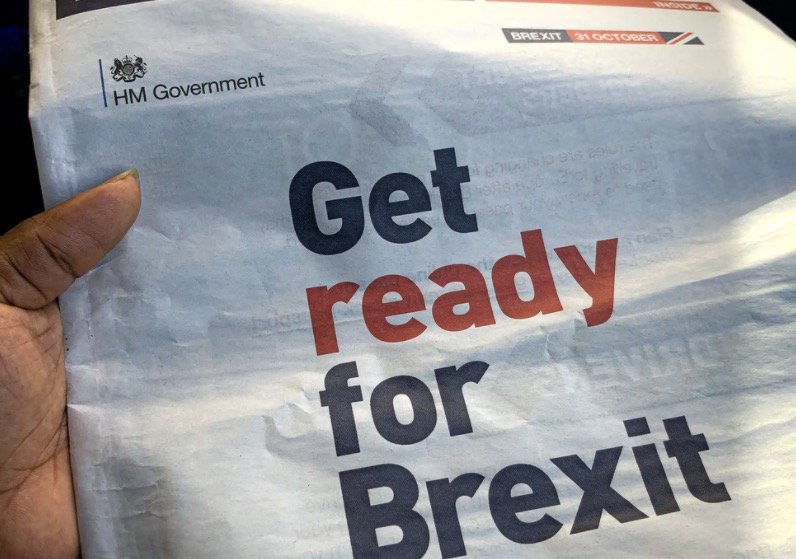

December 2020 - Ecommerce, Feature

When the UK leaves the EU on 1st January 2021, businesses that deal with Europe will have to follow new rules. The main areas of your business that will be affected are;
Make sure you’ll be ready for Brexit by working closely with your UK-based fulfilment house. They must have the following customs information, or they won’t be able to dispatch goods overseas on your behalf;
Here at Jem, we’re working with our clients and have done everything we can to comply with the shipping providers (e.g; DPD, Royal Mail, UPS, FedEx etc…) by supplying them with the relevant customs data electronically.
You can find lots of detailed information here.
Additionally, we’ve broken it down on the following pages into 5 key areas, to help you see at a glance if you’ve got your basic import and export functions Brexit ready.

All non-EU based businesses require an Economic Operator Registration and Identification (EORI) number to trade with the EU. This is an ID code used to track and register customs information in the EU. An EORI takes about one week to receive, so apply as soon as possible.
You’ll also have to check that your importer has an EORI number too.
Post-Brexit, imported goods won’t be released from customs control until you’ve made a full declaration and paid customs duty. All customs docs need to be completed correctly with the importer’s details, such as full company name, address, email address, contact number and EORI.
Making customs declarations is time consuming, so we advise that you get help. Most businesses hire a third party to handle everything which can be done using EU established freight forwarders, customs agents or fast parcel operators.
If you want to do it yourself, you’ll need to purchase special software that can submit to the Customs Handling of Import and Export Freight (CHIEF) system and apply for access to CHIEF as a starting point. To speed up exporting, you may be able to use the Common Transit Convention (CTC) which allows a delay in paying customs (until it reaches the destination rather than at the border). Before exporting, you’ll also need to make an export declaration. Find out what you need to register for the National Export System (NES) to make an export declaration.
Post-Brexit, you will be able to charge customers VAT at 0% (a.k.a ‘zero rate’) on most goods you export to European countries.
Check if you can zero rate your goods for VAT
Depending on what you import, you may need to change labelling on your goods, bring the goods into a different UK location or apply for new licences.
You may also need new export licences, although these should only apply to restricted good such as firearms, food and medicines.
Check if they apply to your products
From the 1st, all existing trade agreements with the UK will no longer apply. The Government has been aiming to replicate the existing EU terms in new trades. You can check which countries have a new trade agreement with the UK, or what stage they are at, here.
If there is a country you want to trade with that has no trade agreement in place at the time of Brexit, you can trade under World Trade Organisation rules and use Most Favoured Nation tariffs. Go to guidance on MFN tariffs for in-depth advice.

Brexit will affect your insurance and any new products to market. Detailed information can be found here.
After January 1st, you’ll need to have a sponsor license to hire anyone new from outside the UK (excluding Irish citizens). The new system will not apply to any current employees from the European Economic Area or Switzerland. Read more here.
International postage charges could fluctuate. Your UK fulfilment company should always let you know about changes, if they get notified in advance. Some couriers may make changes without notice, so it may be worth budgeting for.
It is expected that new UK Data Protection Law will be aligned with current GDPR after the 1st January. However, if your business receives personal data from contacts in the EEA, you will have to follow extra steps to ensure you can still do this and keep complying. Keep up to date with the Information Commissioner’s Office detailed guides here.

The best way to feel prepared for big changes is to use a third-party fulfilment house you can rely on, like JEM. Order fulfilment is all we focus on, so we can do it smoothly, leaving you to concentrate on your products, sales and service.
If you’re considering using a new order fulfilment house, contact the team at JEM to see what we can do for you.
With JEM, you will be ready for Brexit and together we’ll get your goods where they need to go.
If you've any questions about this article, or just want to get in touch, simply fill out the contact form below.
Alternatively, you can call us on 01483 204479